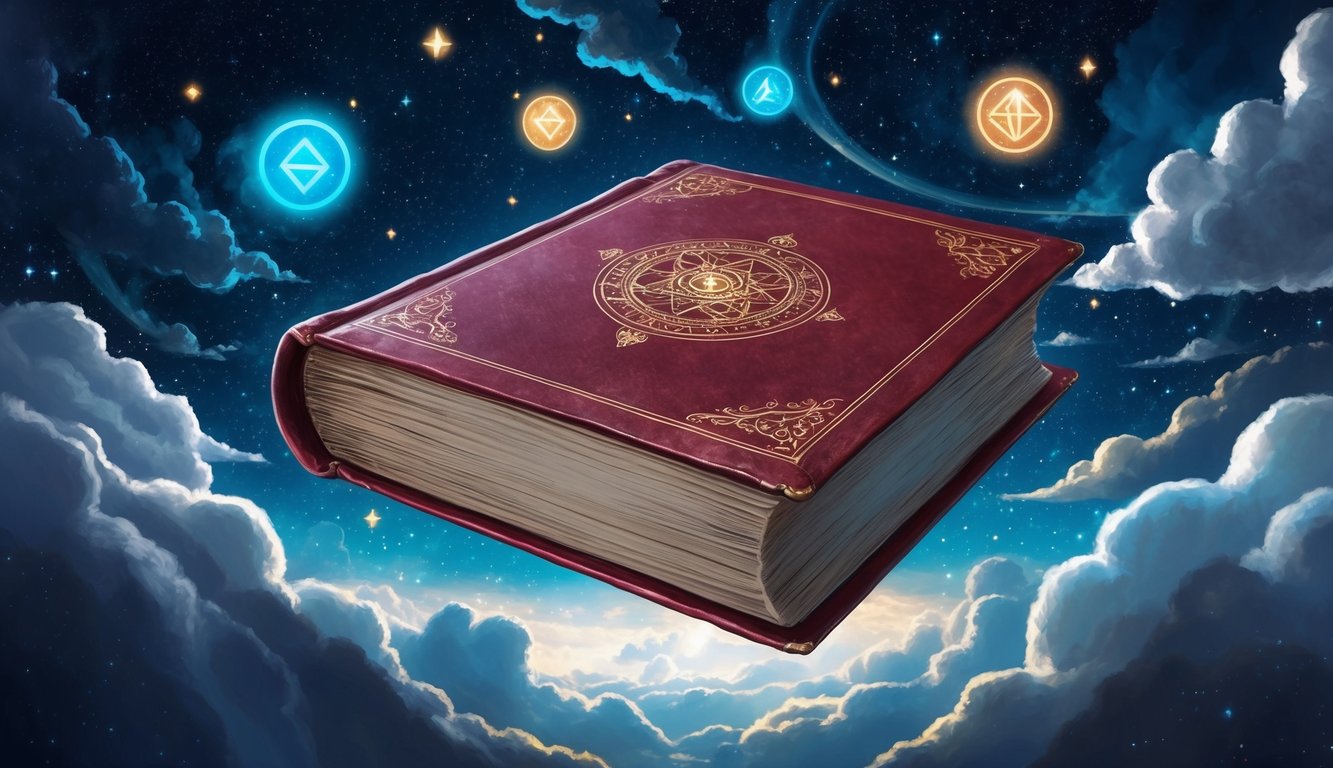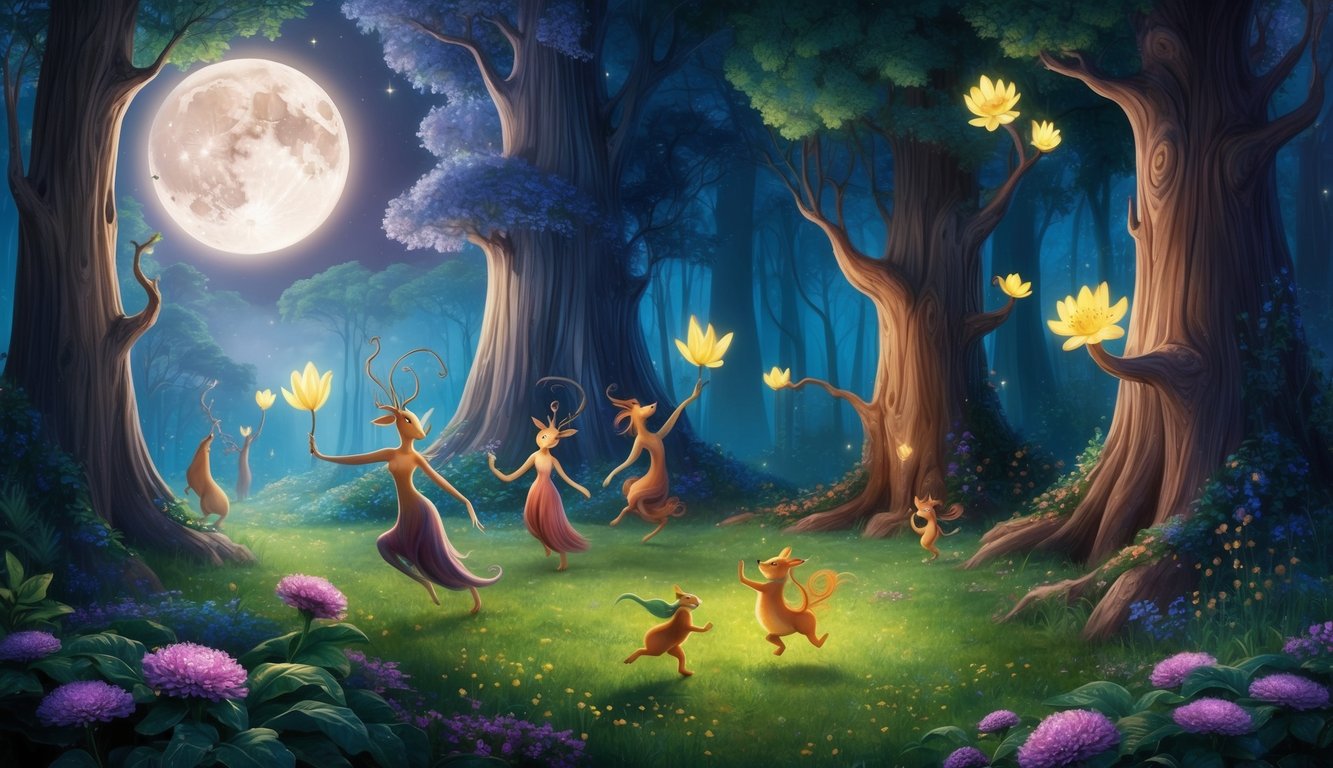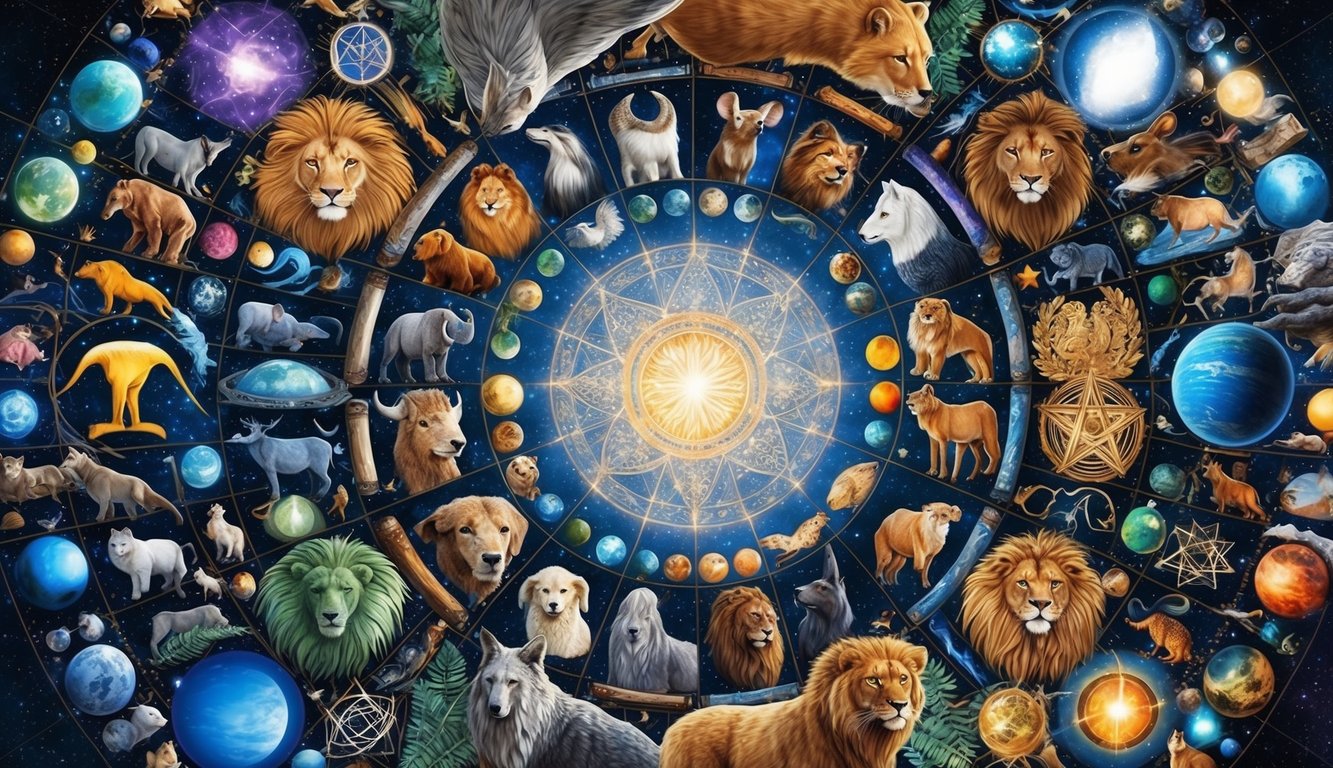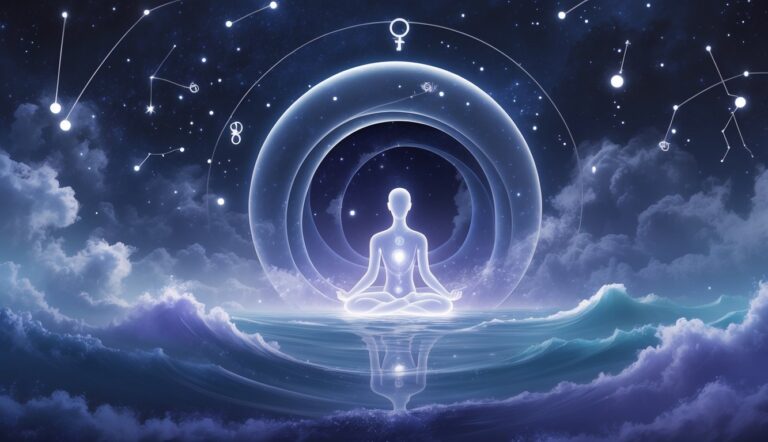Align Your Life with Your True North
The Power Quadrant System decodes your natural talents and pinpoints the career, timing and relationships that let you earn more, love deeper, and wake up eager for the day.
- Uncover your #1 high-income strength
- Draw in partners who raise your energy
- Work when your body’s clock is in “flow”
Dreams can be puzzling and fascinating.
A dream dictionary helps you explore the hidden meanings behind your nighttime adventures. Using a dream dictionary, you can gain valuable insights into your subconscious mind and uncover messages your brain is trying to tell you.
Dream dictionaries have been around for centuries.
They offer explanations for common symbols and themes that appear in dreams.
While not everyone agrees on their accuracy, many find them helpful for understanding their unconscious thoughts.
Looking up symbols in a dream dictionary can be fun and enlightening.
You might discover new perspectives on your life, relationships, and inner world.
It’s a tool that can help you make sense of your dreams and learn more about yourself.
Key Takeaways
- Dream dictionaries can help you understand the hidden meanings in your dreams
- Symbols in dreams may reveal important insights about your unconscious mind
- Exploring your dreams can lead to personal growth and self-discovery
Understanding Dreams
Dreams are a window into your mind.
They can reveal your deep thoughts and feelings.
Let’s explore what science and psychology say about dreams.
Decode Your Personal Success Blueprint
Power Quadrant System shows you the exact career, relationships, and daily rhythm that match your natural DNA—so you earn more, work happier, and connect deeper.
- Pinpoint your #1 money-making talent
- Erase conflict & attract ideal partners
- Multiply productivity with perfect timing
The Science of Dreaming
Your brain is very active when you dream.
During REM sleep, your brain waves look like you’re awake.
This is when most vivid dreams happen.
Dreams may help you:
- Process emotions
- Solve problems
- Store memories
Your dreams often mix recent experiences with old memories.
This is why dreams can seem strange or jumbled.
Some scientists think dreams have no real purpose.
They say dreams are just random brain activity during sleep.
Psychological Perspectives
Sigmund Freud thought dreams showed your hidden wishes.
Tap Into Your Built-In Success GPS
The Power Quadrant System deciphers your genetic blueprint so you can lock onto the career, income and relationships that feel effortless—and wildly rewarding.
- Zero in on your natural high-earning genius
- Sync with partners who boost your vibe
- Wake up driven, finish days fulfilled
He believed dreams were a path to your unconscious mind.
Carl Jung had different ideas.
He saw dreams as messages from your unconscious.
Jung thought dreams could help you grow as a person.
Modern views on dreams include:
- Working through daily stress
- Practicing for real-life events
- Expressing creativity
Your dreams may reflect your emotions and experiences.
Scary dreams might show fear or worry in your life.
Dreams can be powerful tools for self-discovery.
Keeping a dream journal can help you spot patterns in your dreams.
Symbols and Meanings
Dream symbols carry deep meanings.
They speak a unique language that your mind uses to communicate important messages while you sleep.
Let’s explore common symbols and how personal experiences shape your dream imagery.
Common Dream Symbols
Dreams often use universal symbols. Flying in dreams might mean freedom or rising above problems.
Falling could show you’re worried about losing control.
Water in dreams can mean emotions.
Calm water points to peace, while stormy seas hint at turmoil.
Houses often represent you, with different rooms showing parts of your life.
Animals carry meanings too.
A loyal dog might mean friendship, while a fierce lion could show courage or aggression.
Pay attention to how you feel about the animal in your dream.
Numbers, colors, and everyday objects can be important too.
Red might mean passion or danger.
A key could suggest new chances or feeling locked out.
Personal Symbols
Your unique life creates personal dream symbols.
That old bicycle in your dream? It might remind you of childhood freedom if you loved bike rides as a kid.
Your job, hobbies, and fears shape your dream symbols.
A chef might dream of knives as tools, while someone else sees them as threats.
Your cultural background adds meaning too.
Keep a dream journal to spot your personal symbols.
You’ll start to see patterns.
That reoccurring blue door might mean something special to you, even if it’s not in dream dictionaries.
Remember, context matters.
A symbol’s meaning can change based on other parts of your dream and how you felt during it.
Types of Dreams
Dreams come in many forms, each offering unique insights into your subconscious mind.
Some dreams can be frightening, while others may repeat or even seem to predict the future.
Nightmares and Disturbing Dreams
Nightmares are scary dreams that can leave you feeling anxious or upset.
They often stem from stress, trauma, or fears in your waking life.
Common nightmare themes include:
- Being chased
- Falling
- Losing teeth
- Showing up unprepared
To cope with nightmares, try:
- Writing them down
- Talking about them with someone
- Practicing relaxation techniques before bed
Nightmares may serve a purpose by helping you process difficult emotions.
If they happen often, consider speaking to a therapist.
Recurring Dreams
Recurring dreams repeat the same or similar content over time.
They often point to unresolved issues or ongoing stressors in your life.
Some common recurring dreams are:
- Being late for an important event
- Being unprepared for an exam
- Losing something valuable
Pay attention to how these dreams make you feel.
The emotions can give you clues about what’s bothering you in real life.
Try to identify patterns in your recurring dreams.
What changes? What stays the same? This can help you understand their meaning better.
Prophetic Dreams
Prophetic dreams seem to predict future events.
While many people believe in them, there’s no scientific proof they actually foretell the future.
These dreams might feel very vivid or meaningful.
You might dream about:
- Meeting someone new
- A major life change
- An unexpected event
Keep a dream journal to track any seemingly prophetic dreams.
This can help you spot patterns and see if they really do come true.
Remember, your brain processes lots of information daily.
Sometimes, it might make connections you’re not consciously aware of, leading to dreams that seem prophetic.
Dream Characters and Settings
Dreams often feature a cast of characters and diverse settings that can hold meaning.
The people, animals, and places you encounter in your dreams may reflect parts of yourself or your life experiences.
Animals and Creatures
Animals in dreams can represent instincts, emotions, or traits.
You might see a loyal dog symbolizing friendship or a fierce lion representing courage.
Wild creatures may point to untamed aspects of your personality.
A snake could suggest hidden wisdom or deceit.
Insects might indicate small annoyances in your life.
Flying creatures like birds or butterflies often relate to freedom and transformation.
Water animals may connect to your emotions or subconscious mind.
Pay attention to how you interact with dream animals.
Are you scared, friendly, or in control? This can offer clues about your relationship to what they represent.
People and Relationships
The people in your dreams can be quite meaningful.
You may see:
- Family members
- Friends
- Coworkers
- Strangers
- Celebrities
Dream characters sometimes represent aspects of yourself, even if they appear as other people.
A wise old man might be your inner wisdom.
A child could be your innocent side.
Your interactions with dream people matter.
Arguing may show inner conflict.
Hugging could mean acceptance.
Faceless figures might represent unknown parts of yourself.
Pay attention to how you feel about the people in your dreams.
Your emotions can reveal a lot about your waking relationships.
Places and Objects
The settings and items in your dreams create the world where the action happens.
Common dream places include:
- Your home
- School
- Work
- Nature scenes
- Fantastical locations
A castle might represent protection or isolation.
Stairs could show progress in life.
Water often connects to emotions.
Objects in dreams can be important symbols too.
A cane might mean you need support.
A cap could relate to hiding part of yourself.
Your dream’s environment sets the stage for the dream’s events.
A dark forest may create a scary mood, while a sunny beach feels peaceful.
Think about how you feel in the dream setting.
Your comfort level can reveal your emotions about a situation in your waking life.
Interpreting Dream Emotions
Dreams often carry strong feelings that can give us clues about our inner world.
Understanding these emotions can help you make sense of your dreams and what they might mean for your waking life.
Fear and Anxiety
Fear and anxiety in dreams are common and can point to stress in your daily life.
When you wake up feeling scared, take a moment to think about what caused that feeling in your dream.
Was it a specific situation or object? This might relate to something you’re worried about in real life.
Pay attention to how intense the fear was.
Strong fear could mean a big concern, while mild anxiety might be about smaller daily stresses.
Remember, facing fears in dreams can sometimes be your mind’s way of working through problems.
It’s like practice for real-life challenges.
Joy and Happiness
Scary dreams can feel just as meaningful as happy ones.
Try to remember what made you happy in the dream when you wake up feeling good.
Was it a person, a place, or an achievement? These elements might show what brings you joy in your waking life too.
Positive emotions in dreams can boost your mood for the whole day.
They might also reveal your hopes and what you value most.
Dreams that make you happy could be a sign that you’re feeling good about your life.
But even if things are tough, a joyful dream can remind you of what makes you happy.
Practical Dream Analysis
Dream analysis can help you gain insights into your subconscious mind.
By examining your dreams closely, you can uncover hidden meanings and patterns that relate to your waking life.
Understanding how to interpret dreams allows you to recognize symbols and emotions that may be influencing your thoughts and behaviors.
By keeping a dream journal and reflecting on recurring themes, you can develop a deeper awareness of unresolved emotions or desires.
Over time, this practice can lead to greater self-awareness and personal growth.
Keeping a Dream Journal
A dream journal is a useful tool for dream analysis.
Keep a notebook and pen by your bed to write down your dreams as soon as you wake up.
Try to capture as many details as you can remember, including:
- The setting and characters
- Colors and emotions
- Any strange or vivid elements
Don’t worry if you can’t recall everything.
Even small fragments can be meaningful.
Over time, you’ll get better at remembering your dreams.
Writing in your journal regularly helps you spot recurring themes.
You might notice certain symbols or situations that keep popping up.
These patterns can offer clues about what’s on your mind.
Patterns and Themes
As you review your dream journal, look for common threads.
You may see:
- Repeated symbols or objects
- Similar locations or people
- Recurring emotions or actions
These patterns can reveal your deep-seated thoughts and feelings.
For example, dreams about falling might point to anxieties in your life.
Flying dreams could suggest a desire for freedom.
Pay attention to how dream themes relate to your daily experiences.
Your dreams often reflect what’s happening in your waking life.
They can highlight concerns you might not be fully aware of yet.
Consulting Professionals
Sometimes, you might want expert help with your dream interpretation.
Psychologists and therapists trained in dream analysis can offer valuable insights.
These professionals can help you:
- Uncover hidden meanings in your dreams
- Connect dream symbols to your personal experiences
- Use dreams to work through emotional issues
They might use various techniques to explore your dreams.
This could include free association or guided imagery.
The goal is to gain self-understanding.
A good dream analyst will guide you to find your own meanings, rather than telling you what your dreams mean.
Physical and Mental Health Connection
Dreams can affect your health in real ways.
They connect to how well you sleep and how you deal with stress.
These links matter for feeling good in both body and mind.
Sleep Quality and Disorders
Your dreams play a big role in sleep quality.
Bad dreams can wake you up and make you feel tired the next day, which can mess with your mood and energy.
Sleep disorders can change your dreams too.
Things like sleep apnea or insomnia might make your dreams more vivid or scary.
Good dreams, on the other hand, can help you sleep better.
They might make you feel calm when you wake up, which can boost your energy for the day ahead.
Stress and Daily Life
Your dreams can show how stressed you are.
If you’re worried about work, you might dream about being late or messing up a big task.
Dream symbols can point to stress in your life.
For example, dreaming of falling might mean you feel out of control in some area.
Paying attention to your dreams can help you spot stress.
This lets you deal with problems before they get too big.
It’s like an early warning system for your mental health.
Cultural and Historical Aspects
Dreams have played a big role in cultures throughout history.
People have long looked for meaning in their dreams.
Let’s explore how different societies viewed dreams and how dream interpretation has changed over time.
Mythology and Beliefs
In ancient times, many cultures saw dreams as messages from gods.
The Greeks and Romans believed dreams could predict the future.
They had special dream interpreters to explain these visions.
In China, dreams were very important.
People thought they could reveal hidden truths.
The Chinese kept detailed records of dreams in their history books.
Native American tribes saw dreams as a way to connect with spirits.
They used dreams for guidance in hunting and warfare.
Many cultures had their own dream dictionaries.
These books listed common dream symbols and their meanings.
Evolution of Dream Interpretation
Dream interpretation has changed a lot over time.
In the past, it was often linked to religion and magic.
In the 1900s, Sigmund Freud changed how we think about dreams.
He said dreams show your hidden desires.
Carl Jung, another famous psychologist, thought dreams use symbols from your culture.
Today, dream interpretation mixes old and new ideas.
Some people still use dream dictionaries, while others look at dreams as a way to understand their feelings.
Modern science studies dreams too.
Researchers look at brain activity during sleep.
This helps explain why we dream and what dreams might mean.
Symbol Dictionary
Dream symbols have meanings that can help you understand your dreams better.
Many common symbols appear in dreams and can give insights into your subconscious thoughts and feelings.
Alphabetical Dream Symbols A-Z
A is for Apple: Seeing an apple in your dream might mean you’re craving knowledge or wisdom.
It could also point to temptation or desire.
B is for Bear: A bear can represent strength or protection in your dreams.
It might show you’re feeling powerful or need to be more assertive.
C is for Cat: Cats in dreams often relate to feminine energy or independence.
They might suggest you need to be more flexible or self-reliant.
D is for Door: A door in your dream can mean new chances or choices.
An open door could show you’re ready for change, while a closed one might mean missed opportunities.
E is for Eagle: Eagles usually stand for freedom or success in dreams.
Seeing one might mean you’re aiming high or feeling strong and free.
F is for Fire: Fire can mean passion or anger in dreams.
It might show strong emotions or a need to “burn away” old habits.
G is for Garden: A garden often means growth or nurturing in dreams.
It could suggest you’re taking care of yourself or helping others grow.
Dream symbols can have different meanings for each person.
Your own life and feelings play a big part in what they mean for you.
Enhancing Dream Recall
Want to remember your dreams better? You’re not alone! Many people struggle with dream recall, but there are ways to improve it.
Keep a dream journal by your bed.
As soon as you wake up, write down everything you remember.
Even small details count!
Set an intention before sleep.
Tell yourself, “I will remember my dreams tonight.” This simple trick can boost your recall.
Get enough sleep.
When you’re well-rested, you’re more likely to remember your dreams.
Aim for 7-9 hours each night.
Wake up slowly.
Don’t jump out of bed right away.
Take a few moments to let your dreams settle in your mind.
Try these tips to improve your dream memory:
- Avoid alcohol before bed
- Reduce stress through relaxation techniques
- Set multiple alarms to wake up during different sleep cycles
Your dreams are a window into your mind.
By enhancing your dream recall, you can gain valuable insights into your subconscious thoughts and feelings.
Remember, practice makes perfect.
The more you focus on remembering your dreams, the better you’ll become at it.
Sweet dreams!
Beyond Interpretation
Dreams hold deep meaning beyond simple interpretation.
They connect us to our inner selves, spark creativity, and may even offer glimpses into the future.
Let’s explore the spiritual side of dreams, their role in fostering creativity, and exciting new frontiers in dream research.
Spirituality and Dreams
Dreams can be a gateway to your spiritual self.
Many believe dreams allow you to connect with a higher power or your own inner wisdom.
Pay attention to symbols and feelings in your dreams – they may carry important spiritual messages.
Some see dreams as a way to receive guidance from spirit guides or loved ones who have passed on.
Others view dreaming as astral projection, where your soul travels outside your body.
Keeping a dream journal can help you spot patterns and uncover spiritual insights.
Try meditating on a dream symbol or scene.
This may reveal deeper spiritual meanings.
Dreams can also inspire you to explore new spiritual practices or beliefs that resonate with your soul.
Dreams and Creativity
Your dreams are a wellspring of creativity.
They mix ideas in new ways, free from your waking mind’s limits.
Many artists and inventors credit dreams for their biggest breakthroughs.
To tap into this creative power:
- Keep a notepad by your bed
- Write down dreams as soon as you wake up
- Sketch dream images or scenes
- Use dream elements in your creative work
Dreams can help you solve problems too.
Before bed, think about a challenge you’re facing.
Your sleeping brain may come up with creative solutions.
Try dream incubation to spark ideas.
Focus on a question or goal as you fall asleep.
This can lead to inspiring dreams about your topic.
The Future of Dream Studies
Dream research is entering exciting new territory.
Scientists are finding ways to “read” dreams using brain scans.
This may one day let us record and replay our dreams like movies.
Virtual reality is opening new doors for dream study.
Researchers are creating VR worlds based on dream reports.
This helps them better understand how we perceive dream environments.
Lucid dreaming, where you’re aware you’re dreaming, is a hot research area.
Scientists are testing ways to induce lucid dreams reliably.
This could lead to new therapies and boost creativity.
AI is also joining the mix.
Machine learning may soon help analyze dream content on a large scale.
This could uncover new patterns in how we dream.













